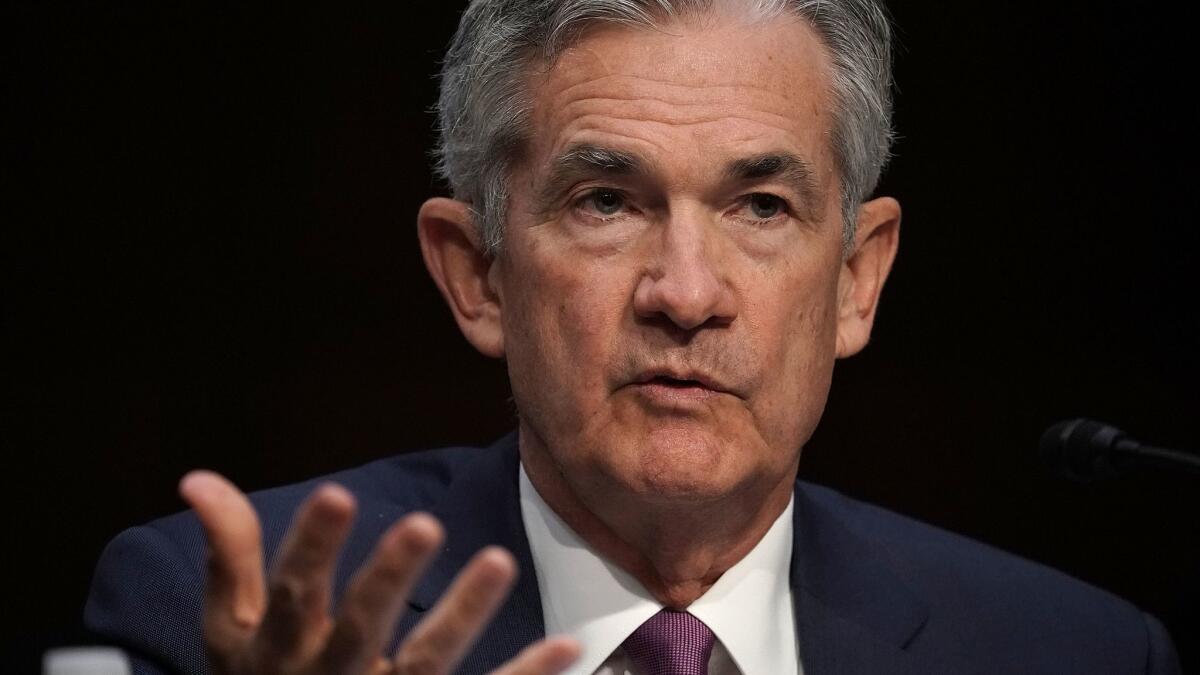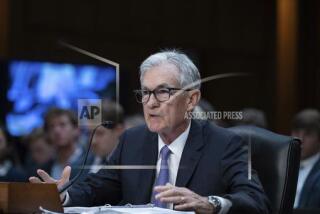Federal Reserve chair calls decline in workersâ share of profits âvery troublingâ

The fall in the percentage of economic growth flowing to workers is âvery troubling,â a worrisome sign in an otherwise bright American economy, Federal Reserve chief Jerome Powell told a Senate panel Tuesday.
Testifying in front of the Senate Banking Committee, Powell expressed concern that the share of profits going to American labor had fallen âprecipitouslyâ for more than a decade and was not reversing course.
In 2000, wages and salaries for American workers accounted for about 66% of the overall economy. That rate has fallen to about 62%, although the decline has leveled off since the end of the Great Recession, according to statistics compiled by the Brookings institution and cited at Tuesdayâs hearing by Sen. Jack Reed (D-R.I.).
âWe want an economy that works for everyone,â said Powell, who was appointed by President Trump last fall to oversee the nationâs central bank. âIn the last five years or so, labor share of profits has been sideways. This is very much akin to the flattening out of median incomes over the last few decades.â
The strength of the overall economy has been widely expected to eventually translate into higher wages for workers, but pay increases so far have been disappointing. Job growth, at more than 215,000 new net jobs every month, remains healthy, with the overall unemployment rate continuing to tick down, and the U.S. economy is growing at a healthy clip, powered in part by strong consumer spending and business investment, Powell said.
But average hourly wages for most American workers have stalled â and, by at least one measure, fallen when accounting for inflation. Powell did express optimism that workers would soon enjoy more robust paychecks, citing one factor in keeping wages down as only a temporary bump in energy and gas prices. Three-fourths of white people said in a 2017 survey that they were doing âat least OKâ financially, as did two-thirds of black and Latino people, Powell noted.
âOverall, you see inflation at a 2% trend and wages at 2.7%,â Powell said, citing a metric of inflation that excludes food and energy prices, which fluctuate rapidly. âThose trends are healthy and reflected in positive surveys among workers generally.â
Powell said the falling decline of laborâs share of national profits stemmed in part from âglobal factorsâ that fall outside the Federal Reserveâs purview. A tight market, like the kind the United States currently has, should result in eventual wage growth, according to Powell.
âThe thing that we can do is to take seriously your congressional order that we seek maximum employment,â Powell said. âIn tight labor markets, workers are more likely to be paid well and paid their share.â
Sen. Patrick J. Toomey (R-Pa.) asked if trade tensions initiated by the White House could help explain stagnant wages by discouraging business investment amid uncertainty over tariffs.
âIt may well be,â Powell said. âWe donât see it in the numbers yet, but weâve heard a rising chorus of concerns.â
Stein writes for the Washington Post.
More to Read
Inside the business of entertainment
The Wide Shot brings you news, analysis and insights on everything from streaming wars to production â and what it all means for the future.
You may occasionally receive promotional content from the Los Angeles Times.










